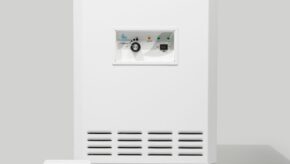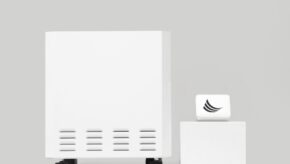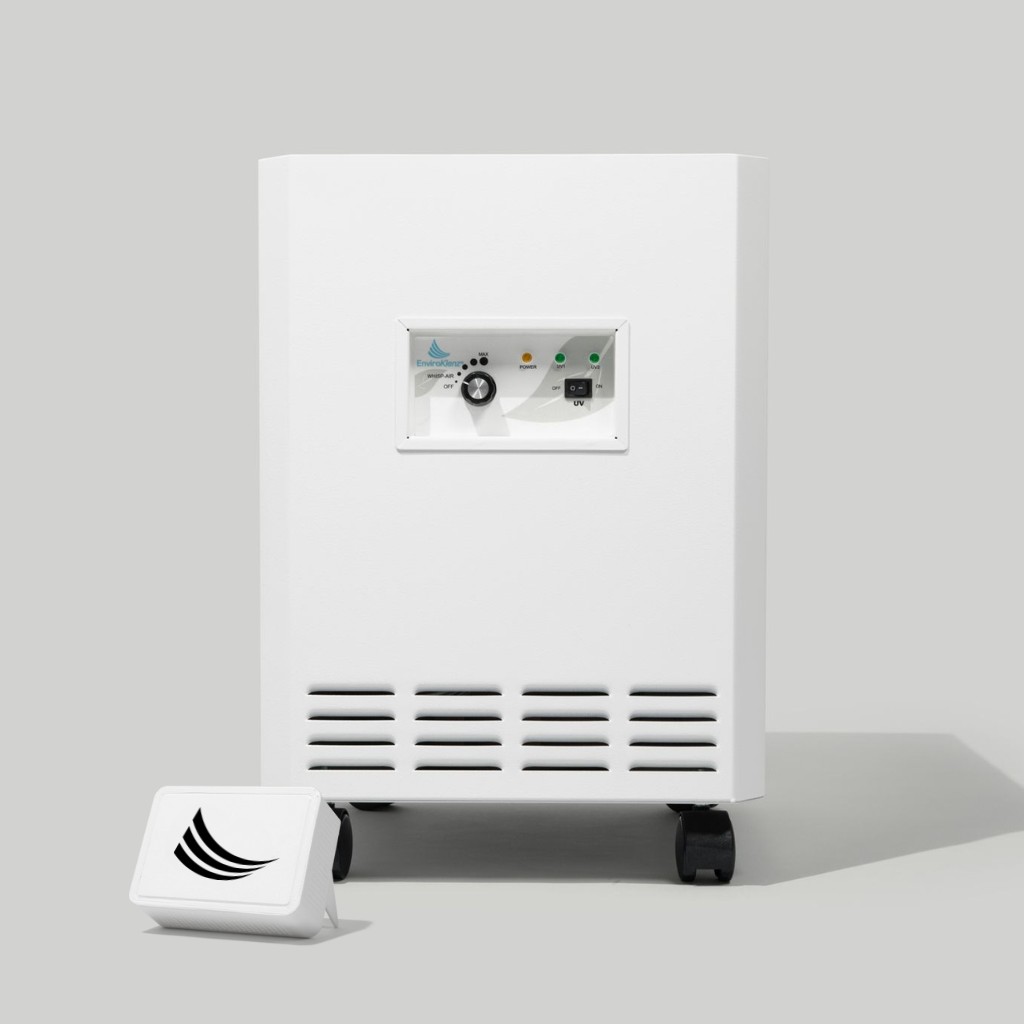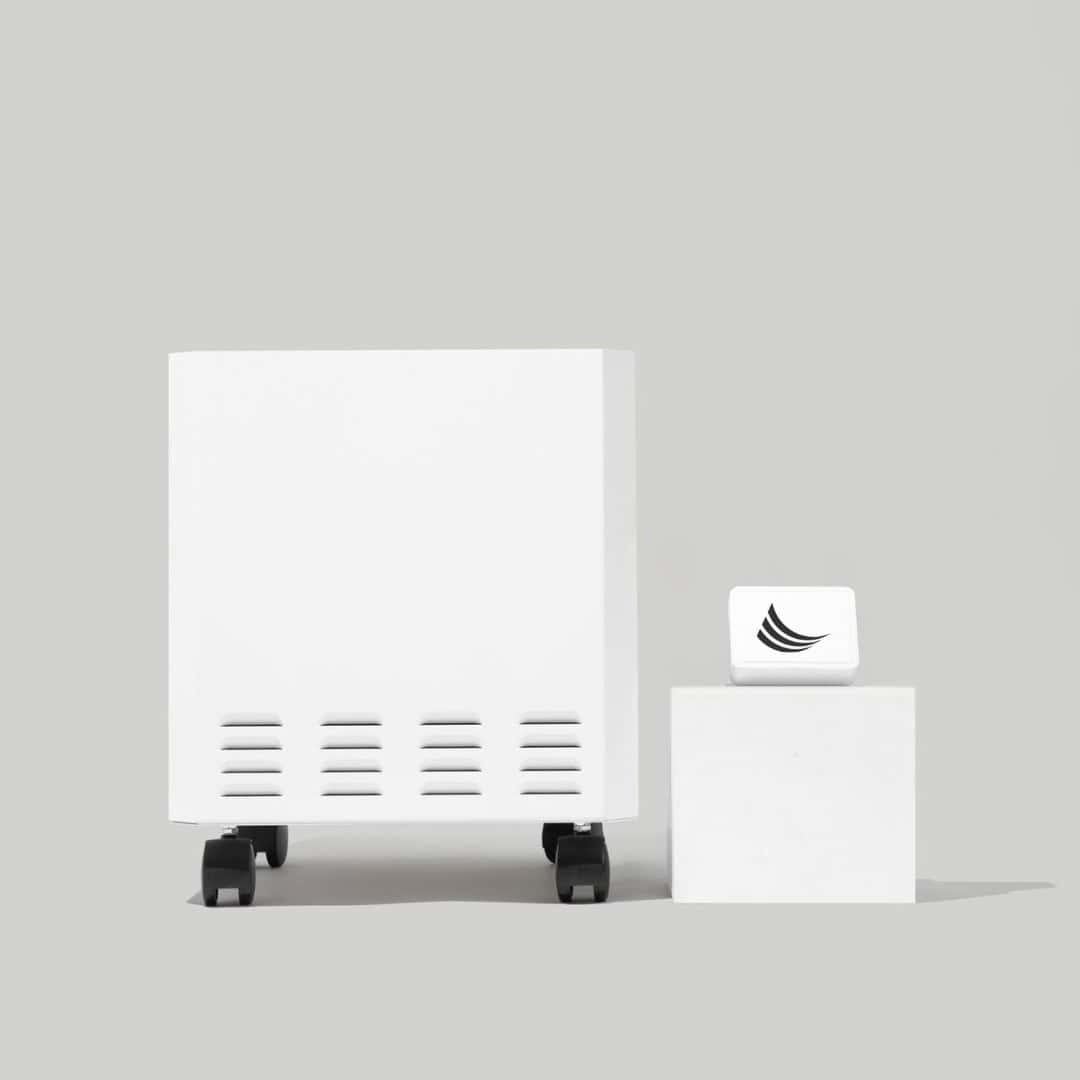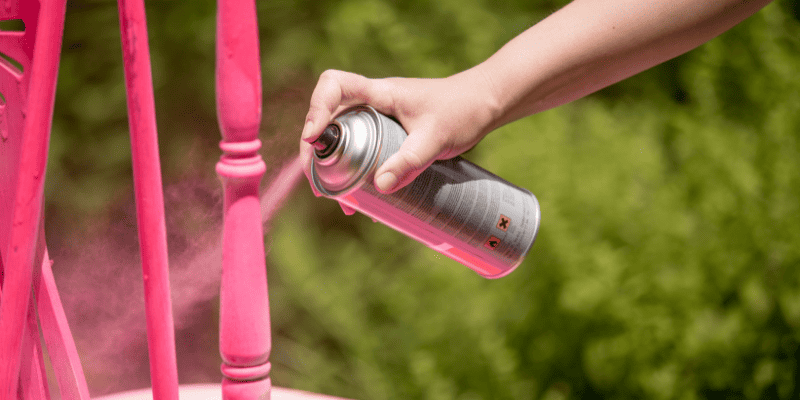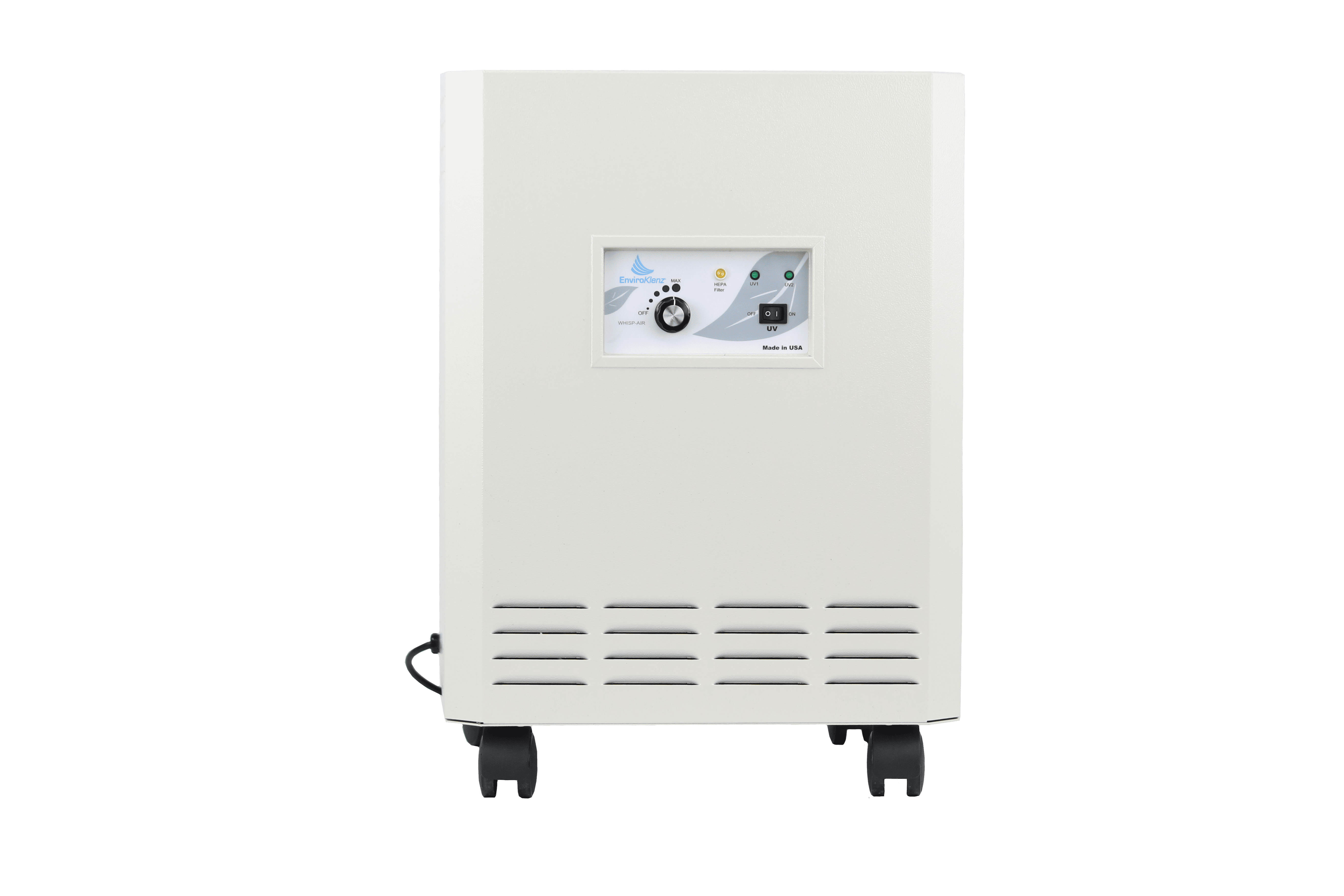The home renovations have commenced, and you have finally begun to make the necessary improvements that you have been eager to make to your house. It could be a change to your flooring, new wood cabinets in your kitchen, or even a fresh coat of paint to your tv stand, walls, or even your front door. Along with these changes not only comes a new fresh look to your home but also alters your home’s air quality due to the potentially high levels of chemicals that can be emitted from these minor changes made inside the indoor environment.
Paint is a renovation item that can drastically compromise the indoor environment and taint the quality of the air when applied within this confined space. While there is a variety of low-VOC (volatile organic compounds) and low-odor paints available for consumer use in today’s market, these paints still pose a great risk to indoor air quality and public health of those exposed to these paint fumes. These compounds are harmful to humans and can cause headaches, dizziness, and nausea.
In this article, we are going to discuss the hazards that spray paint provides to an environment and public health, along with the best method to get rid of spray paint smell and fumes inside of a home.
Is Spray Paint Toxic?
Spray paint is an easily applied paint mechanism that gives homeowners the ease of painting items in their homes with minimal work and little mess.
There are many benefits to using spray paint as it will help you finish projects faster, help to provide a more even coating, and it even comes in a wider variety compared to other painting options available to consumers. However, when it comes to the effects that the spray paint can have on your health, the bad may outweigh the good when evaluating the use of this form of paint inside your personal indoor environment.
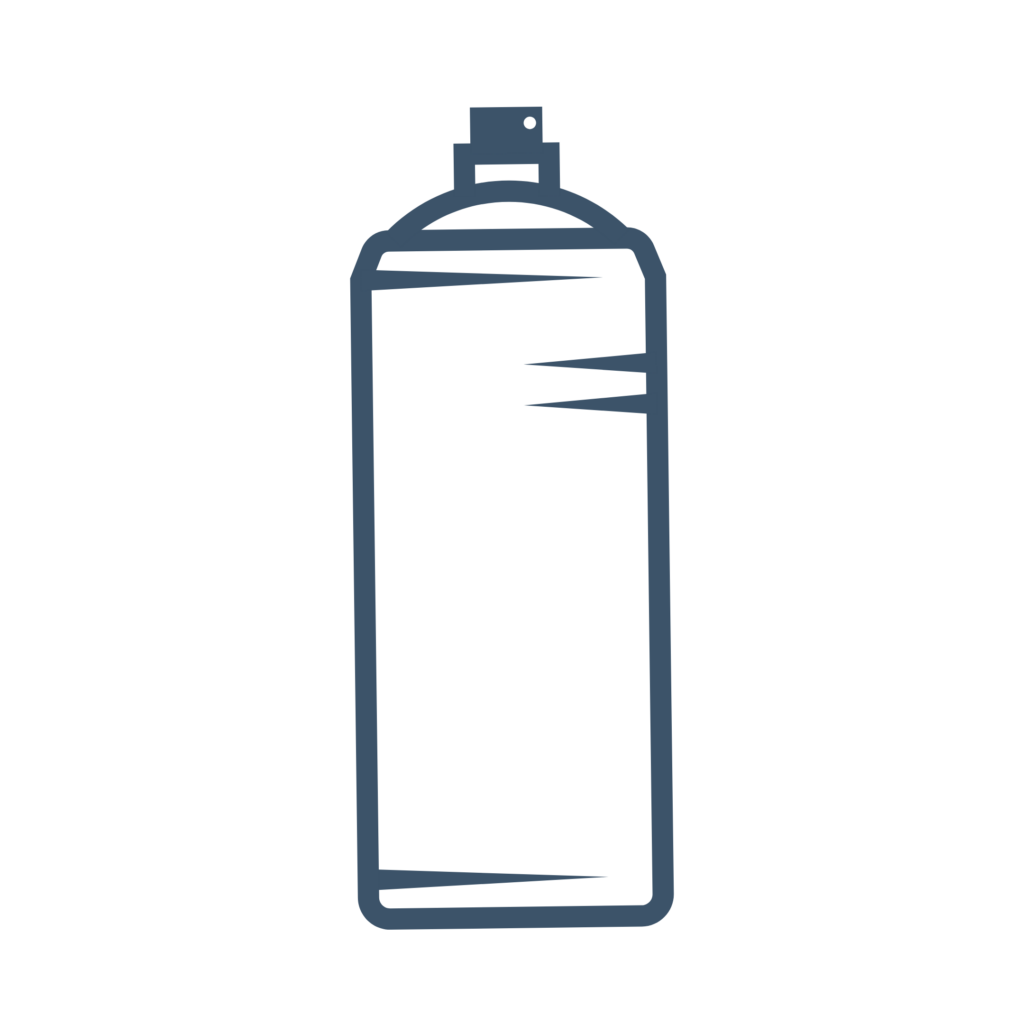
Dangers of Inhaling Spray Paint
When you are spray painting an item or surface inside of a confined space, you are directly exposing yourself to hazardous chemicals including VOCs and other substances that can greatly impact the health of those exposed to the paint. There are both short-term and long-term health effects that an individual can experience from exposure to spray paint. The different health effects that a person may experience from exposure to spray paint can vary based on exposure, the amount of spray paint in the environment, and the health of the person exposed to these paint fumes.
Short term health effects can include irritation, contact dermatitis, burns to the skin and eyes, vomiting and diarrhea, irritation to the nose, throat and lungs, headaches, dizziness, nausea, and fatigue.
Long term health effects can include asthma, allergic contact dermatitis, lung cancer, ‘painter’s syndrome’, brain damage, and even liver and kidney damage.
Breathing Paint Fumes Symptoms
Paint fumes can cause an array of issues for the health of those occupants of the home that the paint spray is used inside of. Generally, any type of paint that is applied within a confined indoor space – including spray paint, can cause irritation to the skin, lungs, and other health issues. These health issues are caused by the various compositions of paint and the chemicals that are used within the paint such as VOCs and other chemical agents.
Not only the paint, but also the fumes that the paint produces in a home can ignite a bout of health symptoms that can include the following:
- Irritation to the eyes, nose, and/or throat
- Headache
- Dizziness
- Nausea
- Trouble breathing
- And liver, kidney, and nervous system damage
Can You Spray Paint Inside the House?
The administering of spray paint inside of a home can raise a lot of red flags, especially for the indoor air quality and adverse health reactions that an individual may have when present in this indoor environment. It is recommended if you are going to spray paint inside of your home, that you follow a set of precautions to aid in the mitigation of spray paint fumes and hazards produced from the paint into the air. These rules for spray painting inside of your home includes the following:
Open all windows and doors inside of your home to allow fresh air to circulate within the home, pushing dirty air out and replacing it with fresh, clean air.
Implement fans inside of the environment to help circulate the air correctly.
Use the correct PPE (Personal Protective Equipment) when applying spray paint onto an item in your home. This protective equipment can include a respirator mask, gloves, and even a bodysuit to cover exposed skin from paint exposure.
How Long Does Spray Paint Take to Dry?
The material where the spray paint is applied onto such as metal surfaces, concrete, and brick will dry much faster than other surfaces like wood, this is because of the absorption of paint on the surface. Typically, spray paint thickness is lower than rolling or brushing paint, therefore it will dry faster than other paint applications. A surface dry of spray paint will usually be accomplished within 10 to 30 minutes after application, whereas a hard dry can take anywhere from 8 to 24 hours following the spraying.

How Long Do Spray Paint Fumes Last?
Household paints, including spray paint, contain different chemicals within its composition such as hazardous VOCs (volatile organic compounds) that are released into the air. These VOCs will become emitted into the air once the paint is applied onto the surface in your home, specifically during the drying process. The level count of VOCs can vary depending on the type of paint that is used and how much paint was applied in the indoor environment. Generally, normal indoor VOC levels in a home usually stand at nearly 50 percent more than outdoor air, but when the painting is done inside of this indoor space the VOC levels can increase to as much as 500 to 1,000 times higher than the level of the outdoor air.
Volatile organic compounds (VOCs) will emit an odor into the air that is classified as paint fumes that will float in the air, and last for a long period of time after the painting has ended. The fumes that spray paint produces can stay lingering in the air causing a multitude of issues for both indoor air quality and public health. The duration of these spray paint fumes will last for a long time, depending on the indoor ventilation, increased airflow, and the use of air devices like air purifiers that can speed up the off-gassing process of VOCs from spray paint fumes in the air of a home.
How to Get Rid of Spray Paint Smell and Fumes in the House
You finished spray painting days ago, but the smell is still swirling inside of your home’s air. The go-to removal methods for paint odor such as onions, lemon water mix, air freshener, candles, baking soda, and even essential oils, have been administered into your home to no prevail, as the spray paint smell still lingers in the air. What can you do to completely eliminate and break down the paint odors in the air of your home?
Air purifiers or systems are the ideal solution to removing and neutralizing paint odors that are present inside of your home after spray painting within this environment. These devices are designed to filter the air and remove contaminants from the indoor air such as allergens, noxious chemicals, and odor removal. The EnviroKlenz Air System is an air system that was specifically manufactured and designed to neutralize and completely eliminate chemicals and odors from the air through the use of a patented earth mineral technology. The proprietary EnviroKlenz technology contains the ability to not only contain, but to also chemically break down a wide variety of chemical compounds without releasing any harmful pollutants or chemicals back into your environment.
What if I can’t Purchase an Air Purifier?
Baking Soda
spray paint smells, sprinkle it over the painted surface or place bowls of baking soda around the room. Allow it to sit for several hours or overnight and then vacuum or sweep up the powder. This method is effective at absorbing the odor and neutralizing the VOCs.
Charcoal
Charcoal is another natural odor absorber that can be used to eliminate spray paint smells. Place a few pieces of activated charcoal in a bowl and place them around the room. Leave them for several hours or overnight, and then dispose of the charcoal.
Vinegar
Vinegar is a versatile household product that can be used for many purposes, including getting rid of spray paint smells. Mix equal parts white vinegar and water in a spray bottle and spray the painted surface or around the room. Leave it for several hours or overnight, and then wipe it away with a clean cloth.
Citrus Fruits
Citrus fruits, such as lemons and oranges, can be used to eliminate spray paint smells. Cut the fruit into wedges and place them around the room or on the painted surface. The natural oils in the fruit can help to neutralize the VOCs in the paint and leave a fresh, citrus scent.
Essential Oils
Essential oils are a popular natural remedy for eliminating odors. There are many different types of essential oils, each with its own unique scent and properties. Some essential oils, such as lavender, peppermint, and eucalyptus, have natural deodorizing properties and can be used to eliminate spray paint smells. Add a few drops of essential oil to a diffuser or mix with water in a spray bottle and mist the room or painted surface.
Activated Carbon Filters
Activated carbon filters are a type of filter that is used to remove impurities and odors from the air or water. They are made from activated carbon, which is a form of carbon that has been treated with oxygen to open up millions of tiny pores between the carbon atoms. This process creates a large surface area for adsorption, which is the process of trapping molecules, ions, or particles on the surface of a material.
Regardless of how you rid your home of the smell, it is important that you check in on the air quality of your home, after the fact. While using some of these home remedies to take care of the smell in your home, you can inadvertently gain some new problems. Whenever doing work, or making improvements to your home, always keep in mind your own personal health and that of your family.
EnviroKlenz® Medical Disclaimer:
“Any information that is provided on this website is not for the use by any commercial or personal entity without expressed written consent of the blog author. The material and statements illustrated within this blog are not intended to diagnose, treat, cure, or prevent any diseases or medical conditions. Nor does the author in any way guarantee or validate the validity, totality, or efficacy of any claims and will therefore not be held responsible for the content of any claims. Always consult your medical physician for any specific medical advice or recommendations.”
